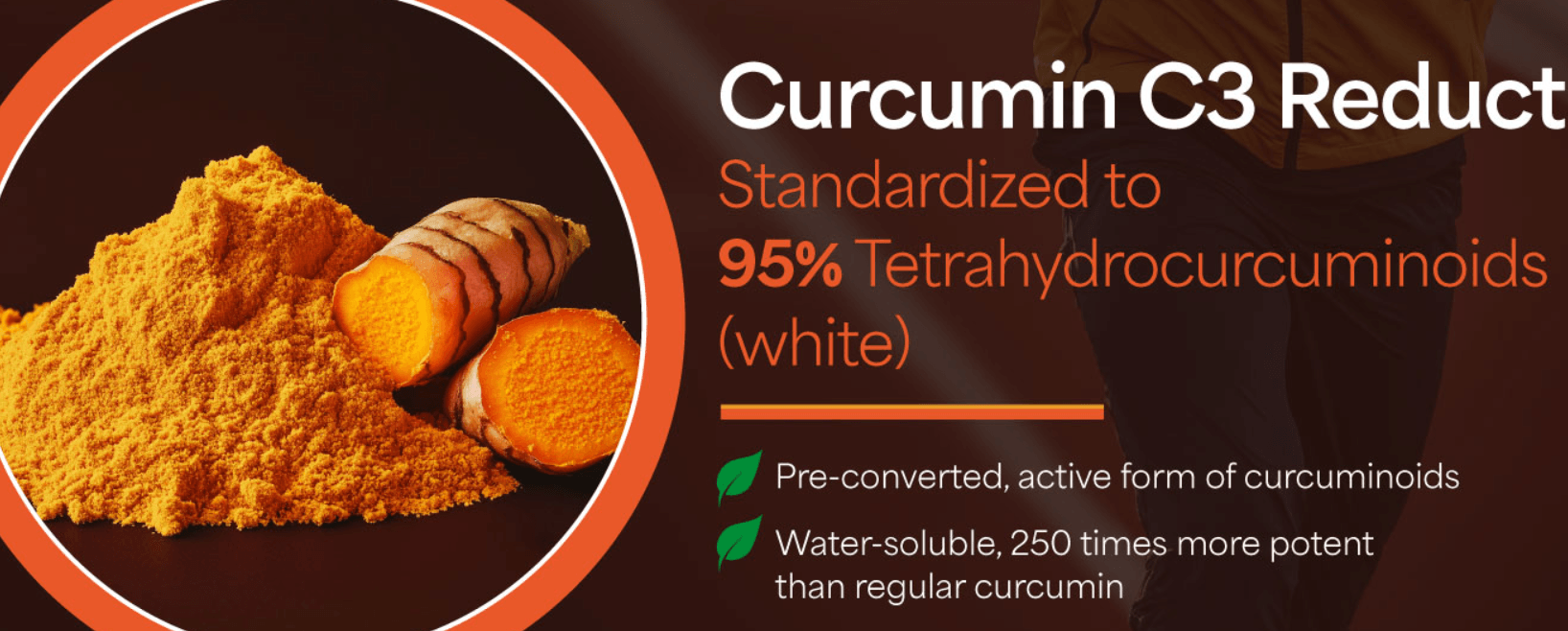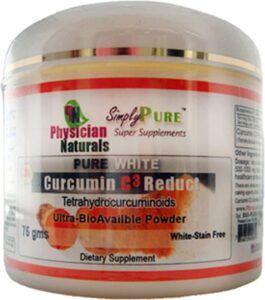Safe Truthful Facts About The Side Effects Of Turmeric
G’day, folks! Rob here, your midlife health mate. Today we’re having a very important, no-nonsense chat. We’ve talked a lot on this site about the incredible benefits of turmeric and its active compound, curcumin. But with great power comes great responsibility. As the popularity of high-dose turmeric supplements has exploded, so has the need for a crystal-clear understanding of their potential side effects. This isn’t about fearmongering; it’s about E-E-A-T—Experience, Expertise, Authoritativeness, and Trust. And trust begins with being upfront about the full picture.
Let’s be clear: for the vast majority of people, turmeric is incredibly safe, especially when used as a culinary spice. However, when you concentrate its power into a daily supplement, you are essentially using it as a potent, natural medicine. And like any medicine, it can cause issues for some people, especially at high doses or when mixed with certain medications. My mate Dave learned this the hard way, ending up with some serious stomach trouble after tripling his dose without thinking. This guide is here to make sure you can harness the benefits of turmeric supplements safely and effectively, armed with the right knowledge. Let’s get straight into it.
Quick heads-up: I might earn a small commission if you buy through links on this page, at no extra cost to you. It helps me keep the lights on and the good oil flowing. Cheers for the support! See my full disclosure.
Table of Contents
- Why We Need to Talk About Turmeric Supplement Side Effects
- The 5 Most Common Side Effects of Turmeric Supplements
- Who Is Most at Risk? 6 Groups That Must Be Cautious
- How to Use Turmeric Supplements Safely: Rob’s Rules
- Your Top Questions on Turmeric Side Effects
- The Final Word: Respect the Spice
The 5 Most Common Side Effects of Turmeric Supplements
When side effects do occur, they are almost always linked to taking high doses of concentrated turmeric or curcumin supplements, not from your dinner. Here are the most common issues reported in both clinical studies and by real-world users.
 Digestive Upset (The Most Common Culprit): This is number one for a reason. High doses of curcumin can irritate the gastrointestinal tract. This can manifest as stomach cramps, bloating, acid reflux, flatulence, and in some cases, diarrhea. It’s the body’s way of saying, “Whoa, that’s a bit much.”
Digestive Upset (The Most Common Culprit): This is number one for a reason. High doses of curcumin can irritate the gastrointestinal tract. This can manifest as stomach cramps, bloating, acid reflux, flatulence, and in some cases, diarrhea. It’s the body’s way of saying, “Whoa, that’s a bit much.”- Headaches and Dizziness: While less common, some individuals report experiencing headaches or feeling dizzy after starting a high-dose turmeric supplement regimen. The exact mechanism isn’t fully understood, but it’s often dose-dependent. If this happens, it’s a clear sign to stop and reassess.
- Skin Rashes: Allergic reactions to turmeric are rare but possible. They can present as a mild itchy rash or hives. This is a direct signal that turmeric isn’t a good fit for your system, and you should discontinue use immediately.
- Nausea: Similar to general digestive upset, some people simply feel nauseous when taking potent turmeric extracts, especially on an empty stomach.
- Yellow Stool: This one can be alarming but is usually harmless! Because curcumin is a vibrant yellow pigment, very high doses can sometimes pass through your system without being fully absorbed, leading to a noticeable change in the color of your stool.
Who Is Most at Risk? 6 Groups That Must Be Cautious
This is the most critical part of this guide. For certain people, the risks of taking turmeric supplements outweigh the potential benefits without strict medical supervision. If you fall into any of these categories, you **must** speak with your doctor before starting.
- People on Blood-Thinning Medication: This is non-negotiable. Turmeric has natural antiplatelet effects. If you take anticoagulants like Warfarin (Coumadin), Clopidogrel (Plavix), or even daily aspirin for your heart, adding a turmeric supplement can dangerously increase your risk of bleeding. We cover this in-depth in our turmeric for heart health guide.
- People with Gallbladder Issues: Turmeric can stimulate the gallbladder to produce more bile, which is generally a good thing for digestion. However, if you have gallstones or a bile duct obstruction, this increased pressure can cause severe pain and complications.
- People Prone to Kidney Stones: Turmeric is high in soluble oxalates. In susceptible individuals, these oxalates can bind to calcium and form kidney stones. If you have a history of kidney stones, you should avoid high-dose turmeric supplements.
- People with Iron Deficiency: High doses of curcumin have been shown to interfere with iron absorption. If you are anemic or have low iron levels, long-term use of turmeric supplements could potentially worsen your condition.
- Pregnant or Breastfeeding Women: There isn’t enough reliable research to confirm the safety of high-dose turmeric supplements during pregnancy or while breastfeeding. It’s best to err on the side of extreme caution and avoid them.
- People Scheduled for Surgery: Due to its blood-thinning properties, you should stop taking turmeric supplements at least two weeks before any scheduled surgery to reduce the risk of excessive bleeding.
How to Use Turmeric Supplements Safely: Rob’s Rules
So, how do you get the benefits while minimizing the risks? It comes down to being smart and listening to your body.
- Rule #1: Start Low, Go Slow. Do not jump in with a 2,000mg dose on day one. Begin with the lowest recommended dose on the product label (often 500mg once a day). Take it for a week and see how you feel. If all is well, you can slowly increase if needed.
- Rule #2: Take it With Food. Taking your turmeric supplement with a meal that contains some healthy fat can not only improve absorption but also significantly reduce the risk of digestive upset.
- Rule #3: Choose Quality Over Quantity. A high-quality, bioavailable supplement (like one with piperine or a liposomal formula) will be more effective at a lower dose than a cheap, poorly absorbed one. This means you get more benefit with less risk of side effects. Be wary of adulterated turmeric, which can contain harmful contaminants.
- Rule #4: Listen to Your Body. This is the golden rule. If you experience any persistent side effects, your body is sending you a clear signal. Stop taking the supplement and consult your healthcare provider.
THE NEXT-GEN HERO: Curcumin C3 Reduct
What if you could get the benefits of curcumin in a form that’s already ‘activated’ and ready for your body to use? That’s the science behind C3 Reduct. It uses tetrahydrocurcuminoids, the most active metabolites of curcumin. This form is colorless (no yellow staining!), more stable, and boasts superior bioavailability without needing black pepper.

Why it’s the hero: It represents the cutting edge of turmeric supplementation. By providing the active form of curcumin directly, it bypasses the body’s conversion process, leading to maximum potency and absorption. It’s the cleanest and most scientifically advanced option on the market. And most likely ha the least side effects turmeric supplement.
Best for: Users who want the highest possible bioavailability, have a sensitive stomach (as it doesn’t need piperine), or want to avoid the yellow staining of traditional curcumin.
Read My Full C3 Reduct Review Check Price for C3 Reduct
Next Top Early Adopter Amazon Pick:: Pure White Curcumin C3 Reduct
Sometimes you just need a reliable, well-reviewed, and budget-friendly option you can get delivered quickly. Physician Naturals on Amazon ticks all those boxes, offering a high-potency formula that has been vetted by thousands of real-world users. It’s a fantastic and accessible choice for daily use.

Why it’s on the list: This product stands out on Amazon for its transparent labeling, heaps of positive user reviews, and the inclusion of BioPerine (black pepper extract) for proven absorption. It delivers the new Curcumin C3 Reduct curcuminoid dose, so you know you’re getting a potent and effective product.
Best for: A fantastic, budget-friendly starting point for those who want a proven formula with strong social proof from a massive user base.
Your Top Questions on Turmeric Side Effects
Can turmeric supplements damage your liver or kidneys?
For people with healthy liver and kidney function, turmeric supplements are generally considered safe. However, the risk of kidney stones from oxalates is real for susceptible individuals. There have been very rare case reports of liver injury linked to high-dose turmeric supplements, often in products that may have been contaminated. This highlights the importance of choosing reputable brands.
How long do the side effects of turmeric last?
For most common side effects like digestive upset or headaches, they will typically resolve within a day or two of stopping the supplement. If you experience a skin rash or other allergic-type reactions, they may take a few days to clear up completely.
Are there side effects to taking turmeric with black pepper (piperine)?
The main “side effect” of piperine is its intended one: it increases the absorption of curcumin. However, it can also slow down the elimination of certain prescription drugs from the body, increasing their potency and risk of side effects. This is another critical reason to speak with your doctor if you are on any medication.
Can you take too much turmeric supplement in one day?
Yes, absolutely. While there is no official upper limit, most studies use doses between 500mg and 2,000mg of curcuminoids per day. Doses above this significantly increase the risk of side effects without necessarily providing additional benefits. More is not better.
The Final Word: Respect the Spice
Turmeric is one of the most beneficial plants on the planet, but it’s essential to approach high-dose supplements with the respect they deserve. They are not just food; they are potent bioactive compounds.
Understanding the potential side effects and knowing who is most at risk is the foundation of using them safely and effectively. By following the simple rules—start low, take with food, choose quality, and listen to your body—you can confidently make turmeric supplements a powerful part of your midlife health toolkit.
This isn’t about avoiding turmeric; it’s about using it intelligently. Knowledge is the key that unlocks the benefits while keeping you safe from the risks.




Thanks for this post. I have been researching different supplements for their health benefits and came across your article.
It is good to see such a balanced view here, highlighting not just the positives but also the potential drawbacks too. This is the kind of information I was looking for to make an educated decision.
Tell me, do you have any advice on how to start applying turmeric into a diet without experiencing these side effects?
I am interested to learn more. Thank you
Chris
Hey Chris. Sure, as suggested in the article simply start adding a little powder in your food, with the addition of a little lack pepper for absorption into the blood stream. Or go strong and take a low dose “500mg” supplement capsule once every couple of days to start out until you know you are ok with taking them.
It is good to bear in mind that the first week or two it is often expected to experience good bowl cleansing, if it continues after that I would I would consider a consult.:)
Thanks for stopping
Cheers Rob